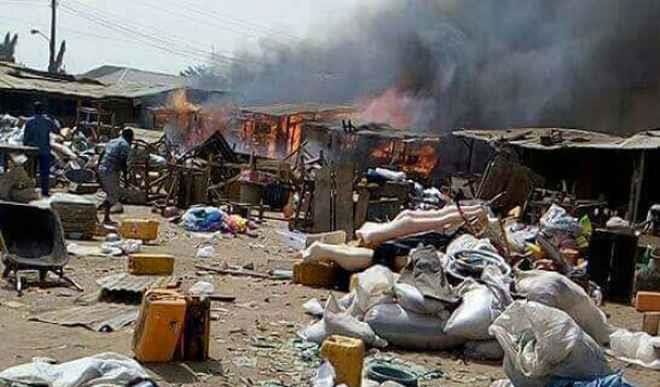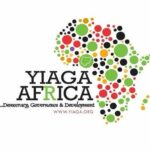The recent resurgence of violence in some parts of Plateau state has brought to the fore many questions begging for answers. For about two decades, the name Jos has been synonymous to ethnic, religious and indigene/settler crisis. Since the September 9, 2001 crisis that rocked the state, Plateau the home of peace and tourism has fallen into different types of crises.
These crises at various times have led to loss of lives and properties worth millions of naira. Besides, it had and it continues to displace thousands not to talk of victims with lifetime injuries. The foundation of the series of unending crisis that continue to ravage the state defies any logical explanation, pundits say.
Initially, it was tagged an indigene/settler crisis. It was said that the crisis was between the Berom, Anaguta, Afizere and the Hausa on the other hand. It was an agitation by the indigenes who claim ownership of the state, mounting pressure on the ‘Hausa’ settlers to vacate their God-given territory. The Hausas settlers are mostly Muslims whose parents and grandparents came to the state in search for greener pasture while mining was still in vogue in the Tin city.
During the 2001 crisis, like the other crises, the victims were not just Beroms and the Hausas but Christians and Muslims. This is to say, the crisis has taken a religious dimension –giving it an ethno-religious colouration. Till date, in Plateau State, a mild disagreement between a Berom and a Hausa man might trigger a religious crisis that would lead to loss of lives and properties of residents, including innocent commuters on transit to or from the nation’s capital, Abuja.
The case would not be different if any form of misunderstanding ensue between a Fulani herder in Barikin Ladi and a Berom farmer in either Barikin Ladi, Riyom or Jos South Local Governemnt Areas of the State. As puzzling as it may looks, the situation would not also be different if most Christians support a particular candidate and their counterparts support a different.
Toeing the memory lane, in 2008 when the then Jonah Jang led government decided to organize local government election including Jos North, many Muslim residents of the city commended the government because the office had been vacant since 2002. In this hotly contested election that took place on 28 November, 2008 between a Berom Christian candidate, Timothy Gyang Buba who contested under the platform of the People’s Democratic (PDP) and a Hausa Muslim candidate, Aminu Baba who contested under the All Nigerian People Party. The rumors that the State government was out to impose the former left the state enmeshed in a religious crisis that according to the Human Rights Watch left at least 761 people dead. Homes, mosques, churches and schools were also razed down during the mayhem.
In 2011, Jos couldn’t resist the post election violence that rocked many northern Nigerian cities. Angry mobs supporting the defunct opposition Congress for Progressive Change (CPC) went on rampage after the Independent National Electoral Commission (INEC) announced the then incumbent President Goodluck Jonathan of the PDP as the winner of the 2011 presidential poll. Many people lost their lives and properties in this crisis. What made this multifaceted crisis paradoxical was destruction of places of worships. The Archbishop of the Jos Catholic Diocese, Rev. Ignatius Kaigama registered his dismay over giving the political crisis another outlook.
Less than a year after, while Muslims were observing their Eid-el-Fitr at the Rukuba road praying ground, Christian residents of the area who had earlier given a notice to the Muslims not to come to the area for prayers launched an attack on them. Many of the victims were children. The bodies of some dead ones were desecrated. A video of this bestiality went viral on the internet.
These were among the major crises that shaped the current situation in Jos. Although for about 8 years there had been no crisis in Jos town until recently. But in some parts of Plateau State, violence between Farmers and Herders has continued to haunt the State since 2012. Barikin Ladi, Riyom, Bokkos and Jos South are the most affected local government local areas.
Since the emergence of the Simon Lalong administration on 29th May, 2015, there had been efforts to restore peace in the entire State, until crisis merchants made the Governor’s efforts futile. If one would rate the Lalong led administration on a scorecard, it would be rated as poor in human and infrastructural development with an excellent in making efforts of redeeming the peace image of the Plateau and running an inclusive administration in the State.
Despite these peace efforts, this year the State has been on the news again not for something positive. The pall of doom and gloom descended the State mid this year following retaliatory attacks by alleged Fulani herdsmen on Razat, Ruku, Nyarr, Kura and Gana-Ropp communities of Gashish district in Barikin Ladi local government area. What brought the attack to limelight was not how it spread to Riyom and Jos South local government areas but number of commuters that were hacked to death by the Berom residents of these areas.
In the aftermath of these attacks, hardly a week passes without recording news of attacks or reprisals in at least two local government areas. Cattle rustling, attacks and reprisals have continued unabated despite the trivial presence of security operatives.
On 3 September, the family of a retired military General declared him missing. Investigation by the Nigerian Army traced the footprints of Major General Idris Alkali who retired two weeks before going missing to a pond in Dura-Du District of Jos South. Days after, a search team led by the armed soldiers from the Operation Safe Haven and Maxwell Khobe Barracks, Jos that comprised of men of the fire service and local divers announced the recovery of his car, a black Toyota Corolla alongside other cars from the pond.
Prior to the discovery, there were protests by different Berom bodies calling the soldiers to put a halt to the investigation. A women leader, Mary Yakubu who led one of the protests alleged that should that pond be drained; their men would die owing its ancestral significance.
Following the discovery by the men of the Nigerian Army, the atmosphere of the State had been tensed. Amidst this atmosphere, Thursday 27, September at exactly 7:51 launched a reprisal attack on the Kabong community of Jos North. Reports have it that about 14 people lost their lives to this reprisal attack, 9 of whom are from one family.
In the wee hours of Friday, aggrieved residents of the Kabong-Rukuba road took to the street to fault security operatives over their failure to protect their lives and properties. A Police station was razed down and a military Hilux van destroyed. The irate protesters went on to attack commuters whom they believe share the same faith with the herdsmen, dislodging them from their vehicles. The news triggered violence a fresh violence within the Jos metropolis.
Earlier, the former Plateau State Governor and Senator representing Plateau central senatorial district, Jonah David Jang called on the people of the State to defend themselves against any kind of attack. Before one could say Jack Robinson, the unrest had spread to Gada Biu, Katako, Dutse Uku, Tina junction, Farin Gada, Anguwan Rukuba and Rikkos areas.
It shouldn’t be a rocket science for one to understand the current crises in Jos, though intricate, with ethnic and political undertone, religion which is dear to seem to dominate the duo. Among the victims of the Jos crises include the ‘Hausa settlers’ and many Muslim indigenes of Mangu, Wase, Kanam, Bokkos local government areas of Plateau State.
An institution that will monitor provocative speeches especially by politicians, religious leaders and opinion makers, especially on social media should be in place. It is a common knowledge that hate speech and fake news have aid in fanning the flames of ethno-religious animosity in Plateau State. Initiating such institutions would help in nipping the menace of unending bloodletting in the bud.
The Federal Government should brainstorm on creating another route for innocent commuters from the North east going to Abuja plying the Jos, for that would help in reducing the death toll whenever mayhem erupts.
Mahdi wrote this from Jos.

 Join Daily Trust WhatsApp Community For Quick Access To News and Happenings Around You.
Join Daily Trust WhatsApp Community For Quick Access To News and Happenings Around You.


